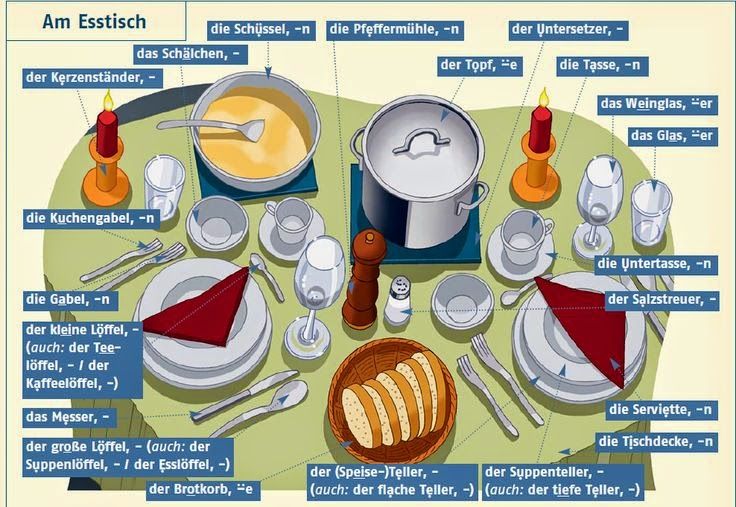So, you want to learn German fast? That’s an ambitious goal, but with the right approach and dedication, it’s a challenge you can overcome! In this comprehensive guide, we’ll provide step-by-step instructions on how to learn German fast. From setting clear goals to immersing yourself in the language, you’ll discover a world of language learning techniques and resources that will make your journey enjoyable and rewarding.
By following this guide, you’ll not only gain a strong foundation in the German language, but also develop the confidence to communicate effectively with native speakers. Are you ready to embark on this exciting journey? Let’s dive in!
Short Summary
- Set clear goals and stay consistent to make the most of your German learning journey.
- Master the basics, such as alphabet, pronunciation & grammar for a strong foundation.
- Make use of language hacks & practice speaking with native speakers to gain fluency and understanding of culture.
Set Clear Goals and Stay Consistent

Before you embark on your German language learning journey, it’s essential to set ambitious goals and establish a consistent study routine. Identifying your main motivation for learning German, an official language in several countries, will help keep you motivated and on track to becoming fluent. Are you learning German for business, travel, or simply to connect with German-speaking family members? Understanding your motivation will help you customize your approach to studying German.
Success in language learning is achieved through consistency. Staying consistent is the key to mastering German quickly. With daily practice, you can master a daily conversation in German in three to six months. Break down your learning goals into smaller tasks, such as:
- completing German lessons
- practicing vocabulary
- listening to German podcasts
- watching German movies or TV shows
This will provide you with the motivation to continue learning and progressing in the language.
To make the most of your German learning journey, it’s crucial to find the best way to learn German that suits your learning style. Here are some options to consider.
- Studying with a professional tutor who provides personalized guidance and support makes language learning even more efficient and enjoyable.
- Engaging in German clubs and meetups allows you to practice speaking with native speakers and fellow learners.
- Taking online courses can provide structured lessons and interactive exercises to enhance your language skills and cultural understanding.

Can you learn German in three months?
Learning German in three months is definitely possible, but the level of proficiency you can achieve within that timeframe might vary. It largely depends on factors such as your prior experience with language learning, the amount of time and effort you can dedicate daily, and your learning methods. If you're a beginner, you might be able to grasp basic conversational phrases, introduce yourself, and understand simple sentences. However, reaching a more advanced level where you can hold complex conversations and understand intricate grammar might be a bit challenging in such a short span.
To maximize your progress, consider immersive techniques like watching German movies or TV shows, practicing with language exchange partners, and using language learning apps. Remember that consistency is key; dedicating consistent time and effort each day can greatly impact your learning journey. While fluency might take longer to achieve, learning some basics and getting a feel for the language is an achievable and commendable goal within three months.
Master the Basics: Alphabet, Pronunciation, and Grammar

Gaining proficiency in the fundamentals of the German language, including the alphabet, pronunciation, and grammar, is pivotal for creating a solid base. Familiarizing yourself with the unique aspects of the German alphabet and pronunciation will greatly improve your speaking skills, while understanding essential German grammar rules will enable you to form accurate sentences and communicate effectively.
In the following subsections, we’ll delve deeper into the German alphabet and pronunciation, as well as the essential grammar rules you need to know. By mastering these basics, you’ll build a strong foundation for your German language learning journey.

The German Alphabet and Pronunciation
The German language has thrilling letters like ä, ö, and ü, as well as captivating sounds like the back-of-the-throat “r” sound in rot (“red”) and the hissing “ch” sound in words like Mädchen (“girl”). To master the German alphabet and pronunciation, it’s essential to pay particular attention to the letters with an umlaut (,, Ü), as they alter the pronunciation of the letter dramatically.
Umlauts are pairs of dots that appear above the vowels A, O, and U in German words, and they can help you to pronounce the vowel sound more precisely towards the front of your mouth with rounded lips. By becoming familiar with these unique letters and sounds, you’ll take your speaking skills to the next level and communicate more effectively with native German speakers.
To further hone your German pronunciation skills, try repeating words and sentences after native speakers, either in person or through audio resources. This will help you to mimic the correct pronunciation and intonation, ensuring that your spoken German is as accurate and natural-sounding as possible.
Essential German Grammar Rules
Understanding essential German grammar rules, including tenses, cases, and noun genders, will help you form accurate sentences and communicate confidently. The German language has six tenses, which are crucial for expressing time-related concepts in your sentences. Additionally, the thrilling four cases in German grammar are nominative, accusative, dative, and genitive. German language uses three genders- masculine, feminine, and neuter. Understanding these genders is essential to mastery of German grammar. Die is used for feminine nouns, der for masculine, and das for neutral gender - these are the prepositions for each gender. Being aware of these grammatical aspects will enable you to create accurate and coherent sentences in German.

Moreover, it’s essential to familiarize yourself with the rules that govern German sentence structure. While simple sentences with a subject, verb, and direct object are quite similar to English, more complex sentences with modal verbs can have a very different structure, with the main verb moving to the end of the sentence. By mastering these essential grammar rules, you’ll be well-equipped to communicate effectively in German.
Boost Your Vocabulary: Techniques and Tools

An essential aspect of learning German is expanding your vocabulary. By increasing your German vocabulary through helpful techniques and tools, such as flashcards, apps, and focusing on relevant topics, you’ll become more confident in your conversational skills. Mastering key German verbs, nouns, and adjectives in German is essential for continuing a conversation with a native speaker and gaining further insight into their culture.
One useful technique for boosting your vocabulary is to break down longer German words into their simpler components. This will allow you to uncover the meaning of more complex words and increase your understanding of the language as a whole. Additionally, setting aside time each day to study German vocabulary will make speaking the language easier and more engaging, opening up a world of possibilities in terms of topics to discuss.
Utilize language learning apps and other resources to enhance your vocabulary acquisition. Some great tools to help you learn basic German include apps like Lingopie, Duolingo or Rosetta Stone. By incorporating these tools and techniques into your daily routine, you’ll soon see significant improvements in your German vocabulary knowledge.
Immerse Yourself in the Language with Lingopie

To truly master the German language, it’s essential to immerse yourself in it as much as possible. Even if you’re not living in a German-speaking country, you can create a mini-Germany at home by playing German games, utilizing free online German language resources, and consuming German media. Watching German movies and TV shows is a great way to improve your listening skills, learn new vocabulary, and gain insight into German culture.
Another fantastic resource that can significantly enhance your language immersion journey is Lingopie. Lingopie offers an immersive learning experience through its curated collection of movies and TV shows in the language you're learning. What sets Lingopie apart is its unique approach – it provides interactive subtitles that allow you to click on individual words to get their translation and meaning. This way, you're not just passively watching content; you're actively engaging with it, expanding your vocabulary and improving your comprehension.
Moreover, Lingopie's diverse content exposes you to various accents, dialects, and real-life conversations, making it an invaluable tool to refine your listening skills. By engaging with the content at your own pace, you'll gradually build the confidence to understand and speak German more fluently. Lingopie also offers selected German shows on Netflix.
Incorporating Lingopie into your language learning routine alongside other immersive activities like podcasts, music, and conversation practice will undoubtedly accelerate your progress and provide a comprehensive language experience. By immersing yourself in this holistic manner, you’ll quickly and effectively achieve fluency in German, unlocking the door to a world of opportunities for effective communication and cultural enrichment.
Another great way to immerse yourself in the language is to listen to German podcasts and music. These resources not only help improve your listening skills, but also expose you to different accents, dialects, and regional vocabulary. To really maximize your listening skills with German podcasts, try slowing them down or focusing intently on what you’re hearing instead of playing them in the background. Lingopie also offers German music for free as well as German podcasts featuring the same language learning tools.
Moreover, engaging in German-speaking activities can help you practice speaking German with native speakers and accelerate your learning. Some examples of these activities include:
- Joining clubs or organizations that focus on German language and culture
- Attending meetups or language exchange programs where you can interact with native German speakers
- Participating in immersion programs or language courses that provide opportunities for conversation and practice
By immersing yourself in this way to learn the German language, you’ll quickly and effectively build fluency and gain a better understanding of the language, ultimately helping you speak German fluently.
Make Use of Language Hacks and Shortcuts
Learning German doesn’t have to be a long and tedious process. By taking advantage of language hacks and shortcuts, you can make your German learning journey more efficient and effective. For example, conversational connectors, such as “übrigens” (by the way) or “tatsächlich” (actually), can help you sound more like a native speaker and keep conversations flowing smoothly.
Another useful language hack is to learn motivational quotes and german idioms, as well as some basic german phrases. These can not only inspire you during your learning process, but also help you understand the cultural nuances of the German language. For instance, some examples of motivational quotes and idiomatic expressions in German are:
- “Übung macht den Meister” (practice makes perfect)
- “Aller Anfang ist schwer” (the first step is always the hardest)
- “Wer nicht wagt, der nicht gewinnt” (nothing ventured, nothing gained)
These quotes and expressions can serve as reminders to stay consistent and dedicated in your language learning efforts.
Lastly, when learning new vocabulary, try to focus on words that are relevant to your interests and daily life. This will not only make the learning process more enjoyable, but also ensure that you’re able to use the new words in real-life conversations. By incorporating these language hacks and shortcuts into your learning routine, you’ll see faster progress and greater success in mastering the German language.
Practice Speaking with Native German Speakers

Talking with native German speakers is a great way to improve your German language skills. It provides feedback on pronunciation, grammar and vocabulary which can help you refine your skills even further. Practicing with native speakers will not only help you improve your fluency, but also provide an opportunity to learn about German culture and make new friends.
In the following subsections, we’ll provide tips and resources for finding language partners and joining German clubs and meetups. By engaging in these activities, you’ll be well on your way to mastering German and sounding more like a native speaker.
Finding Language Partners
Finding language partners online is easy with platforms like Tandem, HelloTalk, or social media groups. These resources allow you to connect with native German speakers who are also interested in learning your language, creating a mutually beneficial language exchange. By practicing with language partners, you can improve your speaking skills, learn about German culture, and make new friends from around the world.
Offline language partners can also be found through language exchange programs offered by universities, language schools, or cultural centers. Attending these events provides an opportunity to practice speaking German with native speakers in a relaxed and informal setting.
Regardless of whether you find language partners online or offline, it’s essential to set a regular schedule for practicing with them. This will ensure that you stay committed to your language learning goals and continue to make progress in your German speaking abilities.

Joining German Clubs and Meetups
Joining German clubs and meetups in your area is another excellent way to practice and speak German, connecting with fellow learners and native speakers. These events often involve engaging activities, such as language games, cultural discussions, or even cooking traditional German dishes, which can help enhance your speaking skills and cultural understanding.
To find German clubs and meetups near you, try searching on websites like Meetup.com or Facebook groups. Local libraries, universities, and language schools may also offer German clubs or events that you can attend. By participating in these activities, you’ll not only improve your German speaking skills, but also gain invaluable insights into German culture and history.
Attending German clubs and meetups regularly will help you stay committed to your language learning goals and provide an opportunity to:
- Make new friends who share your passion for the German language
- Practice speaking German in a supportive and immersive environment
- Learn about German culture and traditions
- Gain access to resources and materials for language learning
- Receive guidance and support from experienced German speakers
So, go ahead and join a German club or meetup today to accelerate your language learning journey!
Learn Through Multimedia Resources

Learning German through various multimedia resources can make the experience more enjoyable and engaging. Utilizing resources such as:
- Podcasts
- Videos
- Movies
- Music
Can diversify your learning experience and help you practice different language skills.
For example, watching German movies and TV shows with subtitles can help you improve your listening skills, learn new vocabulary, and gain insight into German culture. Listening to German podcasts and music can expose you to different accents, dialects, and regional vocabulary, further enhancing your listening skills.
By incorporating these multimedia resources into your daily routine, you’ll not only make your German learning journey more enjoyable, but also improve your language skills in a more engaging and dynamic way. With a wide variety of resources available, there’s something for every learning style and interest. Lingopie is a very good tool to have all the necessary language learning features for learning a language with multimedia.
Avoid Common Mistakes and Pitfalls
To ensure accurate communication in German, it’s important to avoid common mistakes and pitfalls that can lead to misunderstandings or incorrect usage. One such pitfall is the presence of false cognates, which are words that look similar in two languages but have different meanings. For example, the German word “gift” means “poison,” not “gift” as it does in English.
Another common mistake is translating phrases word-for-word, which can lead to incorrect or unnatural-sounding sentences. Instead, focus on understanding the overall meaning and structure of the sentence and then translate it accordingly. By being aware of these common mistakes and pitfalls, you can ensure that your German communication is accurate and effective.
Remember that making mistakes is a natural part of the language learning process. When you encounter a mistake or misunderstanding, take it as an opportunity to learn and grow. By staying persistent and focused on your goals, you’ll continue to make progress and develop your German language skills.
Track Your Progress and Stay Motivated
As you progress in your German learning journey, it’s important to track your progress and stay motivated. Here are some tips to help you stay on track.
- Set milestones and break your goals down into smaller, achievable tasks.
- Monitor your progress regularly to see how far you’ve come.
- Celebrate your achievements along the way to stay motivated.
- Adjust your learning strategies as needed to maintain enthusiasm and momentum.
By following these tips, you can track your progress and stay motivated in your German learning journey.
When you reach a milestone or achieve a significant goal, reward yourself with something special to celebrate your success. This could be a small treat, a day off from studying, or even a short trip to a German-speaking country to put your skills to the test.
By tracking your progress and staying motivated, you’ll be able to maintain your enthusiasm and momentum throughout your German learning journey. Remember that language learning is a marathon, not a sprint, and staying committed to your goals will ensure your success in mastering the German language.

Summary
In this comprehensive guide, we’ve provided you with a step-by-step approach to learning German quickly and effectively. From setting clear goals and staying consistent to immersing yourself in the language and practicing with native speakers, you now have the tools and strategies needed to master the German language.
Remember, the key to success in learning German is dedication, consistency, and persistence. By following this guide and staying committed to your language learning goals, you’ll be well on your way to becoming a confident and fluent German speaker. So, what are you waiting for? Embark on your German learning journey today and unlock a world of new possibilities!
Frequently Asked Questions
What is the fastest way to learn German?
Immersion is the fastest way to learn German - it forces you to use the language daily, connects you with native speakers, and teaches you about the culture all in a short period of time.
Immersion is a great way to quickly become fluent in German. It allows you to practice the language in a real-world setting, and to interact with native speakers. It also gives you an opportunity to learn about the culture and customs of the country.
Immersion.
How can I learn German by myself?
Start learning German by immersing yourself in it and following 10 simple steps. Utilize spaced repetition, stock up some framework words, learn nouns, verbs, and adjectives, memorize reusable phrases, and watch German TV shows or listen to German radio to take your knowledge even further.
Get creative and take a virtual trip to Germany for an unforgettable experience.
What are some effective techniques for boosting my German vocabulary?
Focus on using flashcards, apps, and relevant topics to quickly and effectively improve your German vocabulary!
Flashcards are a great way to learn new words and phrases. Apps can help you practice and review what you’ve learned. And by focusing on topics that are relevant to you, you will be able to focus on the topics that are relevant to you.
How can I immerse myself in the German language if I don't live in a German-speaking country?
Motivate yourself by creating a mini-Germany at home and become immersed in the German language with games, online resources and German media.
Try playing German board games with friends or family, or use online resources to practice your German skills. You can also watch German movies and TV shows, listen to German music, and read German books and magazines.
What are some common mistakes and pitfalls to avoid when learning German?
To avoid common pitfalls when learning German, be mindful of false cognates, incorrect translations and word-for-word translations in order to effectively communicate.










